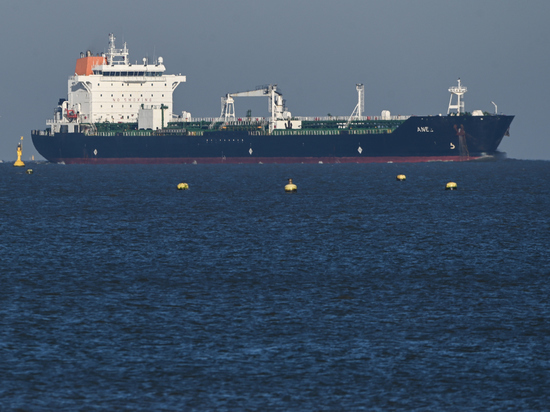Russia’s oil tanker problem escalates
[ad_1]

“Ships that left for India in December have not returned yet”
Europe has the opportunity to increase pressure on the Russian oil industry. According to Bloomberg analysts, in connection with the sanctions, our country no longer has enough tankers for sea transportation. Even the famous “ghost fleet” does not save, which, according to Western media, domestic producers began to assemble at the end of last year on the eve of the Western embargo.
To overcome the shortage of cargo capacity, the Russians, according to the agency, will have to bow to European shipowners, some of whom, despite sanctions prohibitions, are ready to lease their ships, but only at inflated prices.
The European embargo on the sea transportation of Russian oil, introduced last year, forced domestic producers to redirect most of their foreign supplies to the Asian market. According to Bloomberg, in January 2023, 85% of exports of raw materials from our country went to India, and only 6% went to the Mediterranean countries.
As a result, the average distance that a tanker with Russian oil has to cover on its way to a buyer has noticeably increased. If last year the ship usually covered about 5 thousand km, now the sailors are forced to cover almost three times as much. For example, tankers that left the Baltic ports for India after the embargo was imposed on December 5 have not yet returned.
According to the agency’s oil strategist Julian Lee, although Russia has urgently attracted a large number of cargo ships from friendly countries in order to circumvent Western sanctions, their deadweight (total payload. – N.M.) will still not be enough to support the former level of sea exports from the western ports of Russia. Therefore, our suppliers will have to hire more vessels in Europe. There are simply no other options…
From an arithmetic point of view, the American expert is right. According to Natalya Milchakova, a leading analyst at Freedom Finance Global, in January, Russia sent a little more than 90 shipments for export by sea. This level of export requires more than 200 oil tankers, while, according to official data, our country has only 50 vessels capable of carrying out such voyages.
Before the introduction of a ban on European shipowners and insurance companies to work with Russian raw materials, almost half of our exports were transported on tankers owned by European firms. Now domestic manufacturers actually have to assemble the transport squadron bit by bit.
Last fall, information appeared that Russia was creating a so-called “ghost fleet” of tankers to ensure oil supplies to buyers from third countries: it was buying or leasing ships around the world that already had the practice of working under sanctions and previously transporting Iranian and Venezuelan raw materials.
Shipping broker Braemar estimates that through such operations, Moscow has added more than 100 ships that are directly or indirectly involved in the delivery of Russian raw materials to Asian buyers. True, most of the involved vehicles, as a rule, are 12-15 years old and, according to technical safety requirements, they should be written off in the next few years.
“The problem of a shortage of tankers really exists, since before the embargo came into force, Russia chartered vessels from the largest European carriers, many of which are now unlikely to agree to lease them out of fear of indirectly falling under sanctions pressure,” says Artem, head of the analytical department at AMarkets Deev. “Meanwhile, the shortage of oil transport is not only Russian, but also a global headache, since ships of this purpose are not built in large quantities – it takes years, if not decades, to increase the global fleet.”
In February, domestic exporters can count on a little respite and temporarily stop worrying about the urgent search for available sea carriers. Most of the tankers of the Russian and “ghost” fleet are now returning after unloading oil from India, so it is likely that their share in our exports will increase.
However, then, when these ships leave for the next voyage, the situation will escalate again.
“For the time being, Russia can get out of the time pressure associated with insufficient tanker fleet only with the help of European shipowners,” says Sergey Suverov, investment strategist at Arikapital Management Company. “Some of them are still willing to transport Russian raw materials, but they are trying to get a higher risk fee.
In December, the freight rate of a medium-sized oil tanker for the supply of our “black gold” from the Baltic Sea to India increased from the usual $9-11.5 million to $15 million. Since Russian oil has long been traded at a discount, taking into account transportation costs, the final cost of a barrel from our country will be in the region of $ 60 – just the “ceiling” that the US and Europe insist on.
[ad_2]
Source link






